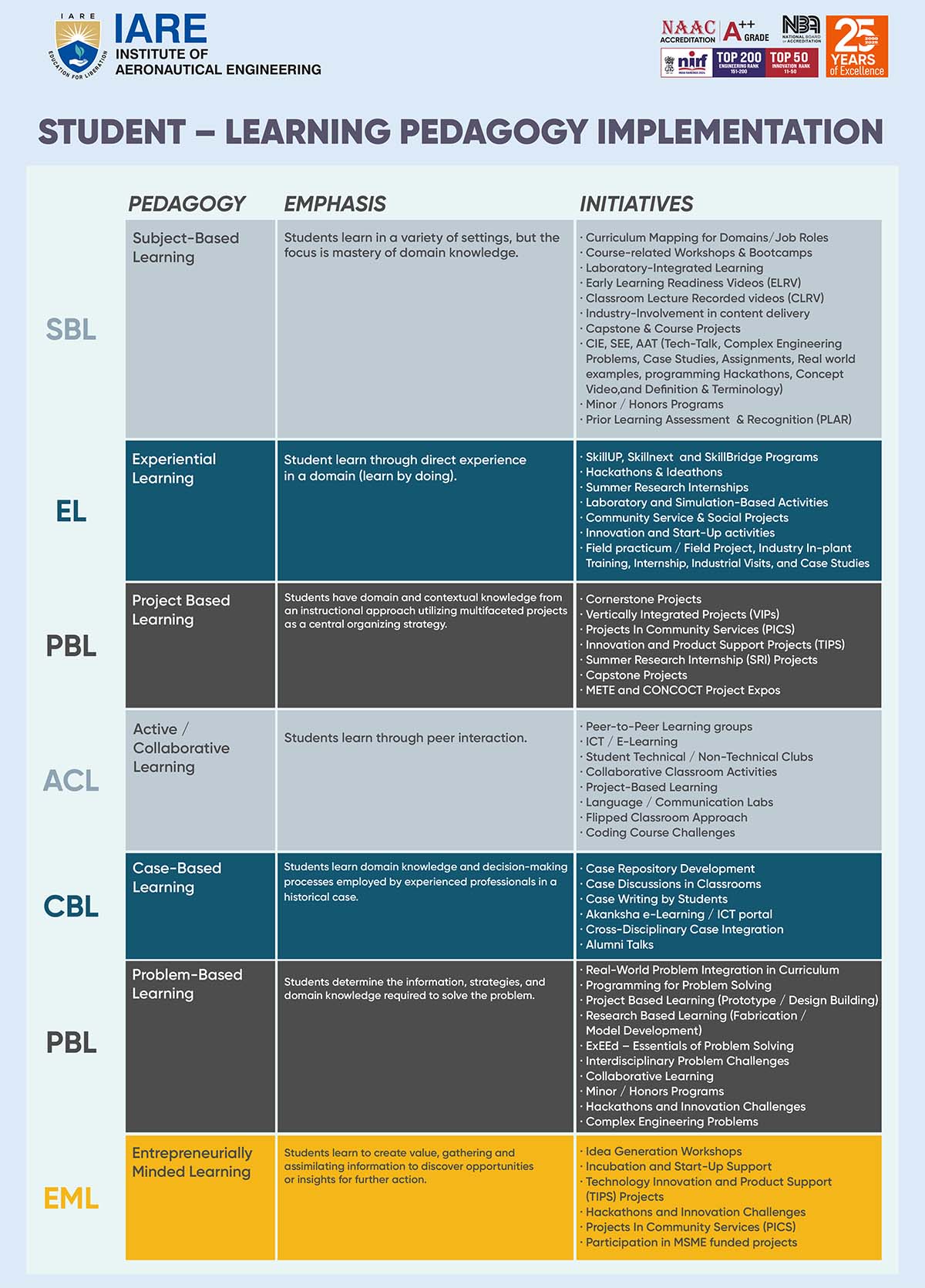Modern pedagogy emphasizes that learning is not simply about absorbing facts in lectures, but about cultivating skills, understanding, and attitudes through diverse and engaging learning experiences. Below are several pedagogical approaches, how they differ, how they complement each other, and some evidence of what works in practice.
The Student Learning Pedagogy Implementation focuses on adopting diverse, student-centered approaches that enhance knowledge, skills, and innovation through active participation and experiential engagement. It integrates various methods such as Subject-Based Learning (SBL), which emphasizes mastery of core concepts through lectures, tutorials, practicals, and self-learning; Experiential Learning (EL), where students learn by doing and reflecting on real-world experiences; Project-Based Learning (PBL), which encourages teamwork and application of multidisciplinary knowledge through complex projects; Active and Collaborative Learning (ACL), promoting peer interaction and shared problem solving; Case-Based Learning (CBL), which builds analytical and decision-making skills using real or simulated professional scenarios; Problem-Based Learning (PrBL), fostering critical thinking and self-directed inquiry through structured problem-solving exercises; and Entrepreneurially Minded Learning (EML), inspiring creativity, innovation, and value creation through opportunity recognition and action. Together, these pedagogical approaches shift the focus from passive learning to active engagement, ensuring that students not only gain academic knowledge but also develop practical, analytical, and entrepreneurial skills essential for success in a dynamic global environment.
